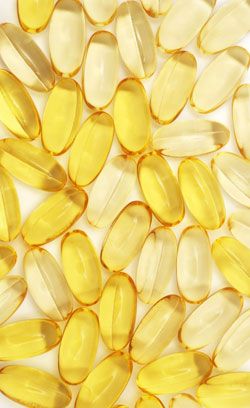
From infancy to adulthood your brain consistently needs a very important source of fuel. This necessary fuel source is DHA. So what exactly is DHA? DHA is a long- chain polyunsaturated omega-3 fatty acid. Some omega- 3 fatty acids are found in food sources such as salmon, anchovies, herring, mackerel, sardines, and tuna. Russell and Blaylock (2008), stated that a large amount of well-conducted studies in humans have shown that omega-3 oils improve brain function, decrease inflammation, reduce the incidences of heart attacks and strokes, improve the outcome of autoimmune diseases, and improve vision. So not only is DHA affecting your brain in a positive way, but also your entire body as a whole.
The Importance of DHA
DHA is critical for a highly functioning brain from when we are born to our entire adult life. According to Russell and Blaylock (2008), there is evidence that as we age, the distribution of DHA in the brain changes. During infancy the highest levels of DHA are found in the striatum (associated with motor control), as in adulthood the highest levels being found in the cortex (essential to cognition). No matter what stage of life you are in, DHA is essential for maintenance and building of the brain.
The majority of studies found in continuous research that an adequate amount of DHA may help or prevent age-related memory loss and Alzheimer’s disease. It makes sense. Why wouldn’t you give your body and brain the correct fuel it needs to run properly? The Academy of Nutrition and Dietetics proclaim that DHA is the most abundant fatty acid in the brain. Having higher levels of DHA in the blood will in turn help the brain to operate more efficiently. Russell and Baylock (2008) also proclaimed that DHA deficiency has been linked with many psychiatric disorders such as depression, suicidal behavior, anger, and hostility. An adequate amount of DHA is a person’s everyday diet may help prevent age-related memory decline and Alzheimer’s disease.
DHA in Your Diet
Seeing just how important DHA is for development of the brain, many infant formulas and food companies are incorporating an omega-3 supplement into their products to help benefit brain growth and function for infants and children. The Dietary Guidelines for Americans in 2010 recommended that adults eat 8 or more ounces of a variety of seafood per week to achieve the proper amount of omega-3 fatty acids they need. While eating seafood once to twice a week might be difficult for some people, omega-3 is available in a supplement form.
High DHA Foods
A normal healthy adult should consume anywhere from 240-1,000mg of DHA daily. Regardless, anyone looking to increase their DHA in any supplemental way should consult their doctor first. According to the Academy of Nutrition and Dietetics oily fish like wild salmon, albacore tuna, mackerel, herring, and farmed trout contain more DHA than any other food source. Not only do fish contain an abundance of DHA, but they are also one of the best lean proteins one can incorporate into their diet. There are other options besides fish for people who are unable or choose not to eat fish. Other food sources of omega-3s include flax seed, canola oil, broccoli, cauliflower, and red kidney beans. However it also noted that our bodies only convert about 5 percent of plant-based omega-3s to DHA.
DHA for Babies
A baby completely depends on omega-3 supply from the mother through breast milk or a fortified formula. It is crucial that an infant receives the proper amount to completely develop a full functional cranial system. Studies from Russell and Baylock (2008) have shown by evidence that developmental problems triggered by low DHA levels can be reversed with proper DHA amounts reintroduced back into the body.
The Benefits of Adequate DHA
There are many benefits of incorporating the recommended daily amount of DHA into your diet. Between improving your brain function, decreasing inflammation (to help with arthritis, soreness, etc…) and improving the outcome of autoimmune diseases. With all these positive benefits, why wouldn’t someone want to incorporate fatty fish or an omega-3 supplement into their diet?
Numerous studies have shown a close correlation between omega-3 oils in the diet and behavioral changes. Russell and Baylock (2008) state, “While both EPA and DHA have been associated with improvements in major depression, only DHA stimulates neurite outgrowth and synaptic development and repair, that is, brain plasticity. Therefore, it may be a better choice in methods to repair the brain damage of chronic depression.” If you aren’t consuming enough of this vital nutrient, then it’s time to start incorporating omega-3s into your diet, as it is one of the smartest things you can do for your brain.
References
Marcason, W. (2014). Feed your brain. Go fish!. Academy of Nutrition and Dietetics
Moore, M. (2013). Memory boosting foods. Academy of Nutrition and Dietetics
Russell, L., & Blaylock, MD. (2008). DHA supports brain development and protects neurological function. Life Extension Magazine










